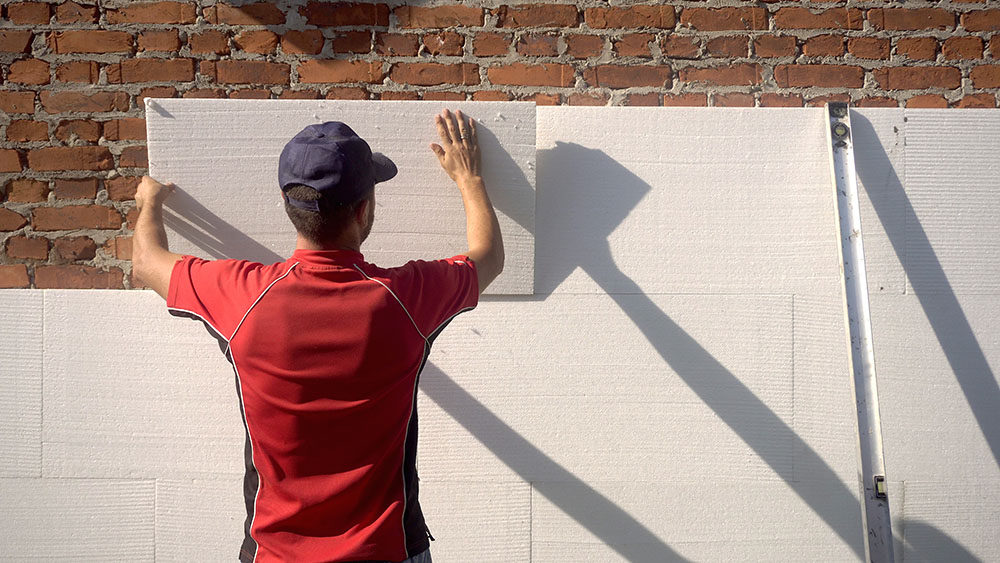What Building Materials Can Prevent Mould?

CONTENTS
- Understanding mould and its impact on construction
- Anti-mould materials: an overview
- Characteristics of effective anti-mould materials
- Evaluating top anti-mould building materials
- Maintenance and longevity of anti-mould materials
- Frequently asked questions
- Get in touch
Mould is an unsightly fungus that thrives in moist conditions, gnawing away at your home's foundations and leaving behind stains. Fortunately, anti-mould materials are becoming more commonplace in construction and renovation efforts.
For mould solutions, you can rely on our team of mould cleaners here at ICE Cleaning. Our mould remediation services involve discovering the root cause of mould and using tailored methods to eliminate it thoroughly, preventing its return.
Read on to learn more about these materials' characteristics, explore popular options and learn how to install them correctly for maximum effect.
Understanding mould and its impact on construction
Mould thrives in damp environments and damages construction materials, leading to structural issues like wood rot and even health problems for occupants. Construction sites, which are exposed to the elements, can be a perfect habitat for mould.
If not dealt with promptly, it could compromise the structure's integrity and its aesthetics. Certain types of mould can cause health issues such as allergic reactions or asthma attacks.
The key factor that allows mould growth is moisture. These conditions provide fertile grounds for mould from leaking pipes to high humidity levels. That is why anti-mould materials have become integral in modern construction practices.
Anti-mould materials: an overview
There are solutions available to combat mould in construction and renovation practices. Anti-mould materials have developed to tackle this issue head-on.
Mould-resistant building materials, such as mould paint or resistant drywall, are designed to prevent mould growth by creating an inhospitable environment for mould spores. This includes surfaces that prevent organic growth, keeping indoor air quality healthy.
Not only do these construction materials prevent moisture seepage, but they also offer energy efficiency benefits, adding value beyond just anti-mould properties.
However, left untreated, even minor surface mould can turn into wall mould infestation - potentially leading to costly remediation services.
Characteristics of effective anti-mould materials
The first characteristic that effective anti-mould materials need is a non-porous surface. This stops water absorption, making it hard for mould to grow. Materials like metal and plastic are used because of their natural resistance to mould.
A good resistance to humidity is another valuable factor for these materials. The more resistant the material, the less likely mould will form on its surface. Finally, an anti-bacterial finish can provide a supplementary layer of defence against mould, germs and other microorganisms.
Evaluating top anti-mould building materials
When considering top anti-mould building materials, three options stand out: mould-resistant drywall, treated lumber, and sealants. Mould-resistant drywall, ideal for high moisture areas such as bathrooms and kitchens, is one of the top anti-mould building materials.
Treated lumber is another excellent choice due to its resistance to rot and mould. Worcester Timber Products explains that this type of wood undergoes a special process which increases its longevity.
Lastly are sealants like silicone or polyurethane, often used on surfaces prone to dampness. They create an impermeable layer against moisture.
However, no single choice will suit all requirements; the benefits and drawbacks of each material must be considered carefully before deciding on your project.
Maintenance and longevity of anti-mould materials
Preserving the effectiveness of anti-mould materials demands regular care. It is essential to keep them dry, as excessive moisture can reduce their mould-resistant properties. Monitor indoor humidity levels with a humidity meter to ensure the anti-mould materials remain effective.
If you intend to paint these surfaces, opt for anti-mould paint first before you decorate. Additionally, routine cleaning helps maintain these materials' integrity.
But remember not to use harsh chemicals that might erode their protective layers. The lifespan of anti-mould products varies based on usage and maintenance habits but typically lasts several years before needing replacement.
Frequently asked questions
What is the most mould-resistant material?
Metal and plastic are top contenders for being highly resistant to mould because they do not hold moisture.
What material prevents mould?
Fibre cement board, due to its water-resistant properties, effectively prevents mould growth on surfaces.
What materials will mould not grow on?
Mould struggles to thrive on non-porous materials such as glass, stainless steel or high-gloss enamel paint.
What is the best thing to prevent mould?
The key prevention measure against mould is controlling humidity levels alongside using anti-mould building materials in your construction plans.
Get in touch
At ICE Cleaning, our mould removal solutions are leading the way for anti-mould technology in the UK. We utilise modern techniques and lab-approved solutions to remove mould, providing you with professional guidance to prevent its return in the future.
If you have any questions about our mould cleaning services, can call our team today at 0208 066 0360 or enquiries@icecleaning.co.uk. Our team operate nationwide, 24/7, all year round. We offer emergency cleaning services where we can arrive on-site within a few hours to assist you immediately.

Speak with me today,
I’m here to help
By asking you a few questions either via phone or email I can immediately provide a realistic estimation of the cost.
You’re in good company. We’ve cleaned for the following commercial clients… View all

Why choose us?
- Cater to a wide variety of cleaning situations
- Nationwide coverage, available 24/7
- Cater to commercial and domestic clients
- Free survey provided prior to quotation
- Emergency response team
- Offer a bespoke service designed to suit all your needs
- All technicians hold professional health and safety qualifications, including BICSc, IOSH, Dewpoint Professional & Safe Contractor
We’re fully accredited
We place best practise, professional expertise and health and safety at the core of our business. We’re fully compliant with all legal obligations. You can view a list of our accreditations below, or visit our Health & Safety page for more information.











-RGB-small.1707319151.jpg)




















